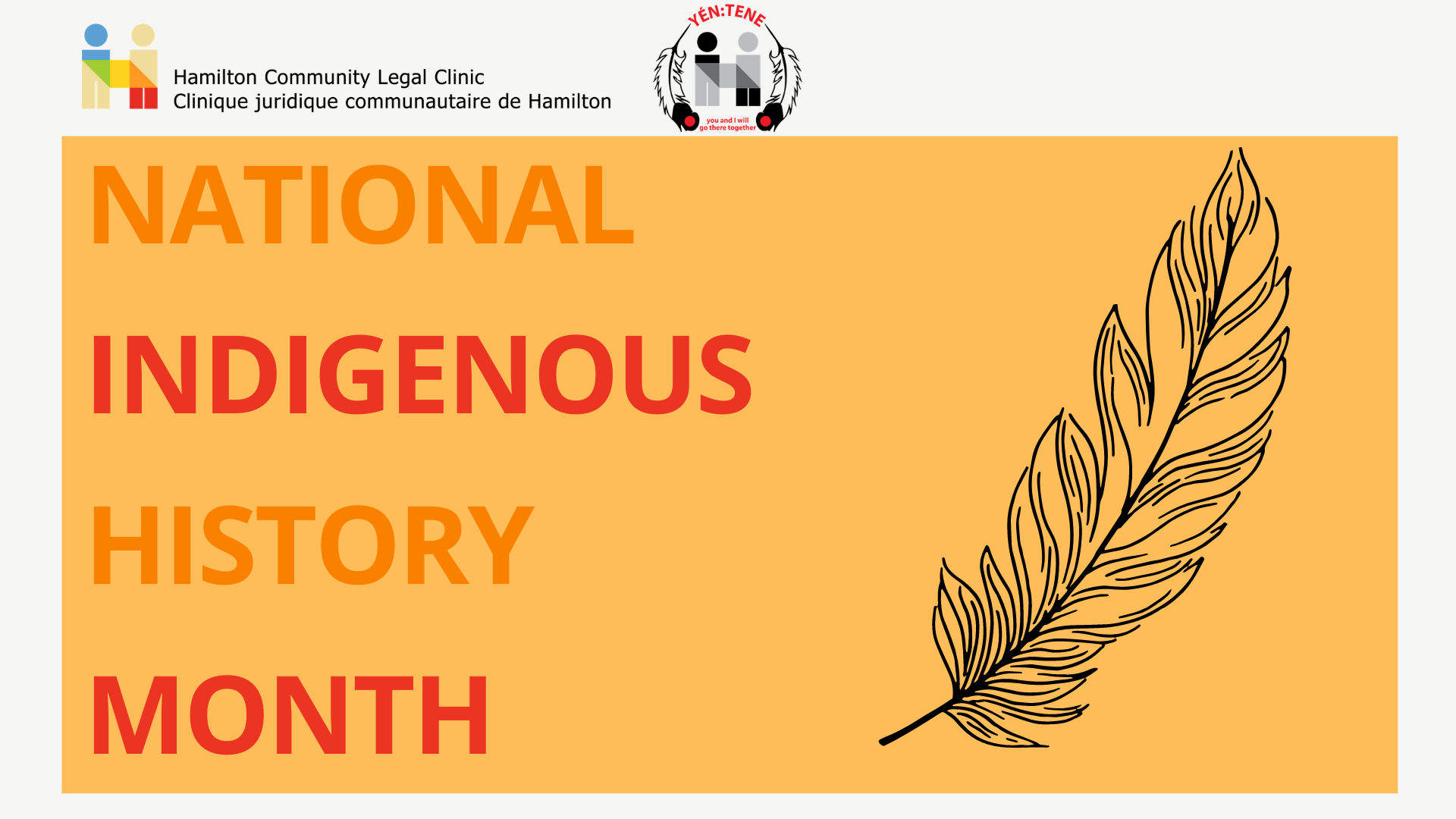
“ June is National Indigenous History Month – a time for all Canadians – Indigenous, non-Indigenous and newcomers – to reflect upon and learn the history, sacrifices, cultures, contributions, and strength of First Nations, Inuit and Metis people. It’s important to keep in mind that First Nations, Inuit and Métis Peoples each have their own unique histories. And within each group, there are distinct histories.” – Indigenous Corporate Training Inc.
The Hamilton Community Legal Clinic (HCLC) is committed to the Calls to Action and the Calls to Justice. “On May 24th 2016, the Hamilton Community Legal Clinic Board recognized National Aboriginal Day as a paid holiday, pursuant to Call to Action 80. The HCLC believes that National Aboriginal Day is an opportunity to expand awareness on Indigenous issues and promote inclusion. This decision represents the values of HCLC and its commitment to “reconciliAction”. The HCLC encourages both Indigenous and non-Indigenous organizations to consider doing likewise.” – A Journey to ReconiliAction – Calls to Action Report
Here’s the timeline on how Indigenous History Month came to be:
1982: The National Indian Brotherhood (now known as the Assembly of First Nations) called for the creation of a National Aboriginal Solidarity Day on June 21.
1990: The Quebec legislature recognized June 21 as a day to celebrate Aboriginal* culture
1995: The Royal Commission on Aboriginal Peoples recommended a day be designated as National First Peoples Day. The Sacred Assembly, a national conference of Aboriginal and non-Aboriginal people chaired by the late Elijah Harper, called for a national holiday to celebrate the contributions of Aboriginal Peoples in Canada.
1996: Governor General Romeo LeBlanc proclaimed that National Aboriginal Day would be celebrated June 21 each year. “On June 21st, this year and every year, Canada will honour the native peoples who first brought humanity to this great land,” said Leblanc. “And may the first peoples of our past always be full and proud partners in our future.”
2008: Prime Minister Harper offered the full apology on behalf of Canadians for the Indian Residential Schools system.
2009: By unanimous motion in Canada’s House of Commons, the month of June was declared National Aboriginal History Month.
2017: Prime Minister Justin Trudeau announced plans to change the name to National Indigenous History Month, reflecting a national and international preference for the term Indigenous, rather than Aboriginal.
If you are interested in learning more about the Indigenous history that was not taught in schools or if you want to learn about history from the Indigenous person’s point of view, there are lots of reports. Some are quite lengthy but well worth the effort.
Reports: